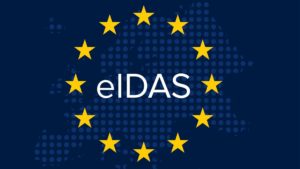Mastering the complexities of electronic signatures regulations is paramount for businesses navigating the ever-evolving digital landscape. Let’s embark on a journey through the intricate world of eSignatures regulations, shedding light on pivotal standards, compliance requirements, and recent updates that significantly impact businesses, especially those operating in a cross-border environment.
European Union: eIDAS Regulation and diversity of additions
At the heart of electronic signatures regulation in the European Union lies the eIDAS Regulation (electronic IDentification, Authentication, and trust Services), enforced in 2016 to establish a unified legal framework across EU Member States.

One of the fundamental aspects of eIDAS are its provisions pertaining to Qualified Electronic Signatures (QES), ensuring that QES hold the same legal effect as traditional handwritten signatures, thus fostering trust and acceptance of digital transactions. While eIDAS sets the minimal interoperable requirements, individual Member States can implement additions to accommodate their unique legal structures and requirements.
On top of the EU-wide eIDAS regulation, individual Member States have implemented supplementary national laws to address specific nuances of electronic signatures within their jurisdictions. For instance, countries such as Belgium and Luxembourg have enacted legislation to complement the regulatory framework established by eIDAS.
To illustrate the additions to eIDAS at the national level, consider the case of Belgium. The law of July 21, 2016, which aligns with and complements the Regulation (EU) No 910/2014, incorporates a provision where a Qualified Electronic Seal, when used for legal acts conducted solely by or between individuals or entities based in Belgium, is treated as equivalent to the handwritten signature of the individual who represents the legal entity that created the seal. Thus, this national legislation recognizes qualified electronic seals with the same legal effect as traditional signatures within the country. These national laws complement eIDAS by providing regulations tailored to each country’s legal system and requirements. By doing so, they contribute to a more comprehensive environment for electronic signatures, while also increasing the diversity in digital transactions across the European Union.
Furthermore, within each country, different industries may have specific regulations that govern the use of electronic signatures. For instance, sectors such as finance and healthcare often have sector-specific compliance requirements that businesses must follow when implementing eSignatures. This underscores the importance of understanding and adhering to industry-specific regulations to ensure compliance and mitigate potential risks.
Finally, eIDAS undergoes periodic reviews and has recently been amended by the new EUDIF (European Digital Identity Framework) regulation to adapt to evolving technological landscapes and enhance the effectiveness of electronic signatures, necessitating businesses to stay informed about these updates to ensure compliance.
Beyond Europe
The adoption and regulation of electronic signatures extends far beyond Europe’s borders, with many countries worldwide developing their legal frameworks to facilitate digital transactions. Thus, international businesses must navigate a diverse range of regulatory landscapes to ensure compliance and facilitate seamless digital interactions on a global scale.
Understanding and adapting to these regulatory environments are crucial for harnessing the full benefits of electronic signatures worldwide. Specific examples, such as Ukraine and the United Arab Emirates, demonstrate the global momentum towards embracing digital transformation and modernizing legal frameworks to accommodate electronic signatures.
Elevating your business with EVA
Navigating the intricate landscape of electronic signature regulations demands more than just a surface-level understanding of the laws and standards in place. Businesses must also equip themselves with the right tools and best practices to ensure compliance and maximize the benefits of digital transactions. A proactive approach involves adopting an electronic signature platform that goes beyond mere signature verification.
This platform should offer additional features such as digital identity management, data privacy, and document traceability. By investing in such solutions, businesses can reinforce the security of their transactions and enhance the efficiency of their document processes.

At Nowina, we understand the importance of staying ahead of the curve in the digital age. That’s why we’ve developed EVA, our electronic signature platform. EVA is more than just a signature tool: it’s a comprehensive solution designed to streamline document workflows, protect sensitive information, and ensure compliance with regulatory standards.
In addition, EVA is continuously updated to meet evolving regulatory requirements and industry standards, ensuring that the users always have access to the latest tools and technologies for secure and compliant digital transactions.
Don’t hesitate to contact us at info@nowina.lu to learn more and embark on a seamless digital transformation journey.

